Overlooked and Underpaid, Nepal’s Pregnant Sanitation Workers Suffer During COVID-19
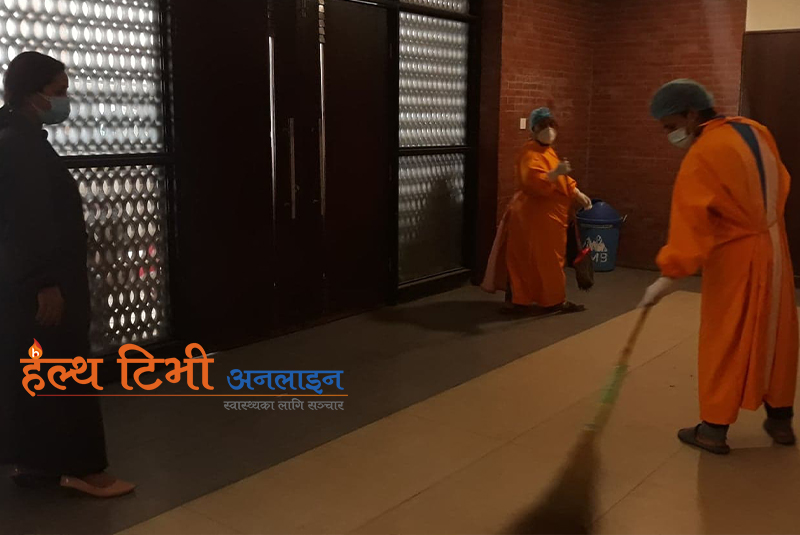
Kalpana Acharya/Kathmandu : Ramila Deuja, 28 (name changed), a cleaner at Bir Hospital in Kathmandu, lost her three-month-old fetus on June, 2021 during the COVID-19 pandemic. “I was fully unaware of the condition of my child in my womb. Knowing the health and growth of the fetus in time could have saved my baby’s life,” she says.
Her first pregnant check-up should have been between 6-8 weeks of her pregnancy. But Deuja did not go for the check-up. She has a reason for that. “As the hospital I work for (Bir Hospital, Kathmandu) was full of COVID-19 patients and most of the doctors were busy treating them, I did not think about my pregnancy check-up. I was busy with my work.” The Government of Nepal has categorized sanitation workers as front-liners in its fight against COVID-. Dr. Krishna Paudel, Spokesperson at the Ministry of Health and Population(MoHP) of Nepal admitted that the ministry could not provide adequate PPEs to sanitation workers when the first wave of COVID-19 was at the peak that increased risks of infection. As she had no alternative than to continuing her work as a cleaner, she tested positive. “At my workplace, I am exposed to many people, including COVID patients. Of course, I wear a PPE suit. But you can be hundred percent sure all the time.” Her fears doubled after catching the virus. “More than myself I feared about my baby. The baby inside me died on the 16th day of my infection,” she says.
According to MoHP’s record last year (before COVID) maternal mortality was 197 whereas this year 297. Likewise last year neonatal death was 2010 and this year 3839.
Her husband was in India and returned to Nepal during the COVID lockdown as the company he worked as a helper closed down. “Following his return, he used to stay with his parents as he had no work to do. I myself could not go for antenatal checkup. Also, none of my family members advised me to visit hospital,” says an illiterate Deuja who lost her first child in her womb.
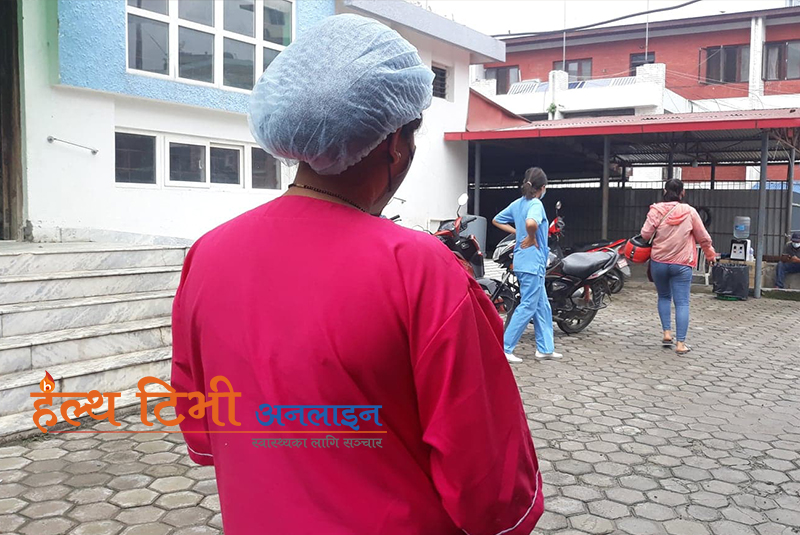
Women sanitation workers who are pregnant, and lactating mothers, are having a hard time during the pandemic in Nepal and paying a heavy price as they continued working even when the country was under the lockdown for five months last year and this year. Only those pregnant sanitation workers with underlying complications were able to rest at home. With COVID-19 still continuing amid slightly rising cases and public health experts warning of a third wave, health facilities are still overwhelmed by COVID patients. Non-COVID services such as pregnancy and postnatal check-up, family planning, safe abortion have taken a hit.
“Pregnant women who are sanitation workers at hospital remain at further risk as they work in cleaning and managing hospital waste being exposed to contracting various diseases and COVID-19 even if a minor lapse remains in taking security precautions,” says public health expert Manju Karmacharya. “They even have to handle waste materials used and dumped by COVID-19 patients. While many times we hear about people advocating for general pregnant women, nobody is voicing for tackling the risks faced by pregnant sanitation workers,” notes Karmacharya who has been working in Nepal and Bangladesh in advancing sexual and reproductive health and rights (SRHR).
Pregnant women who are sanitation workers at hospital remain at further risk as they work in cleaning and managing hospital waste being exposed to contracting various diseases and COVID-19 even if a minor lapse remains in taking security precautions,” says public health expert Manju Karmacharya.
At present, there are around 800 sanitation workers in the Kathmandu Valley. Of them, nearly 80 percent are women. Hospitals have employed a sizable number of sanitation workers. According to the Ministry of Health and Population of Nepal, more than 80 percent of hospital-based sanitation workers are women.
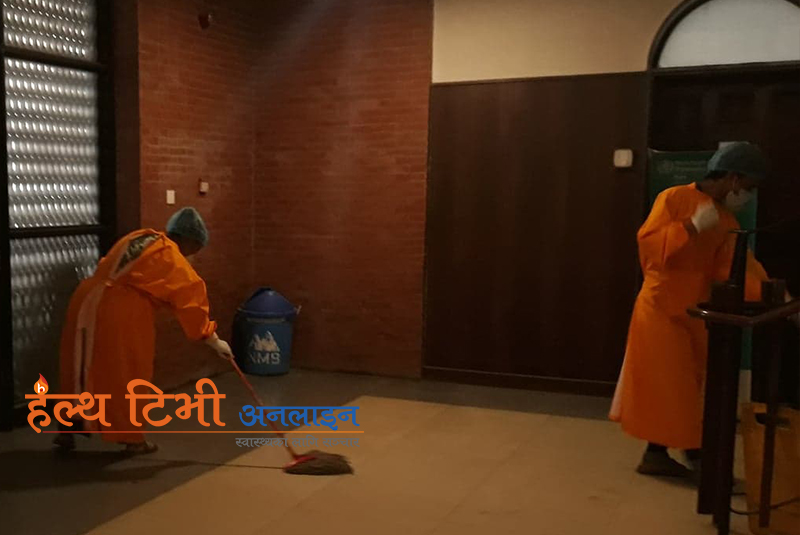
According to MoHP’s record last year (before COVID) maternal mortality was 197 whereas this year 297. Likewise last year neonatal death was 2010 and this year 3839.
Underscoring that the COVID-19 had adversely affected pregnant women, Dr. Sangita Mishra, Head of the Paropakar Maternity and Women’ Hospital, says “During the lockdown, the number of pregnant women visiting our hospital fell by around 50 percent. This has led to an increase in the number of deliveries at home. The maternal mortality rate has also increased in the absence of regular check-ups at the hospital.”
Unless pregnant sanitation workers have medical complications, they are not entitled to leave their jobs before their delivery, Dr. Sher Bahadur Pun, Infectious Disease Specialist, observes that it is natural for pregnant women, mainly those who work in offices to have more fears than common people as they have to be outside their home most of the day. The Government of Nepal is also vaccinating pregnant women on the basis of priority, he said.
Mishra notes, adding, “They get 90 days of leave after delivery.” The first COVID-19 case was detected in Nepal on January 23 last year. The second wave that started from mid-April this year has dealt a devastating blow to the country.
Dr Krishna Poudel, Spokesperson at MoHP, says pregnant women, says in particular those belonging to disadvantaged communities, living in remote areas and also those working as daily wagers, have been hit hard as the pandemic continues. “Reproductive health services, although they are available, are irregular as the majority of the human resources are mostly attending to COVID-19 patients and fighting against the virus,” he says. When the COVID case load peaked in May this year, there were no hospital beds and oxygen.
Like Deuja, Sita Maharjan (27) is another sanitation worker in the capital city. Currently, she is in her seven months of pregnancy. As fears and anxiety continues amid the pandemic, she had not antenatal check-up so far. “Some of my relatives delivered at home. A few of them are so fearful about the coronavirus that they keep on telling me not to consult a doctor as long as there are no health complications,” she says. “I don’t have any health issue now. If there is any, I will visit the doctor.” Her first child is four years old who was delivered at home. “I don’t remember visiting the health facility for pregnancy check-up when I was pregnant for the first time,” she says. As Maharjan works at the COVID ward of Maternity Hospital, she is worried about contracting the virus. “I have been told that even if a pregnant woman is infected with the coronavirus, there is no evidence that the virus transmits to the child. Whatever the case is, I have to be extra vigilant,” she adds.
“Reproductive health services, although they are available, are irregular as the majority of the human resources are mostly attending to COVID-19 patients and fighting against the virus,” he says. When the COVID case load peaked in May this year, there were no hospital beds and oxygen.
Doctors are not surprised with the preference of pregnant sanitation workers like Maharjan to deliver at home amid the pandemic unless they have health complications. “Given the current conditions due to COVID-19 and Nepal’s long history of preferring home delivery instead of institutional delivery, pregnant women like Maharjan opting for a check-up only if something happens is nothing new,” says gynecologist Dr. Jyoti Agrawal. “Maharjan’s case shows that Nepal has not done enough in risk communications interventions to change behavior, perception and attitudes of community people.”
#SRHR #PregnantSanitationWorkers #COVID19








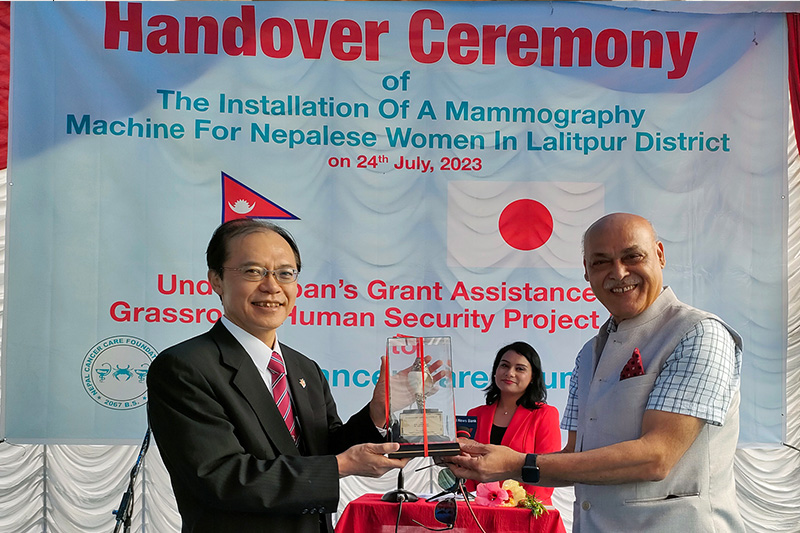



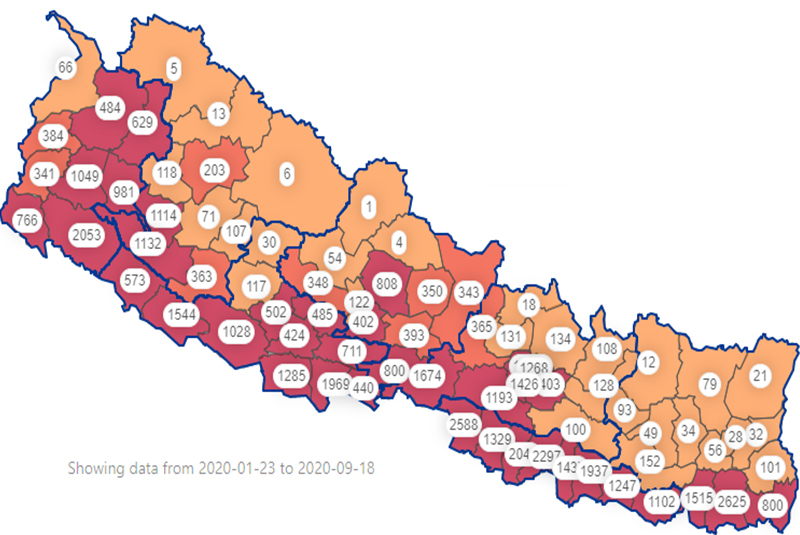
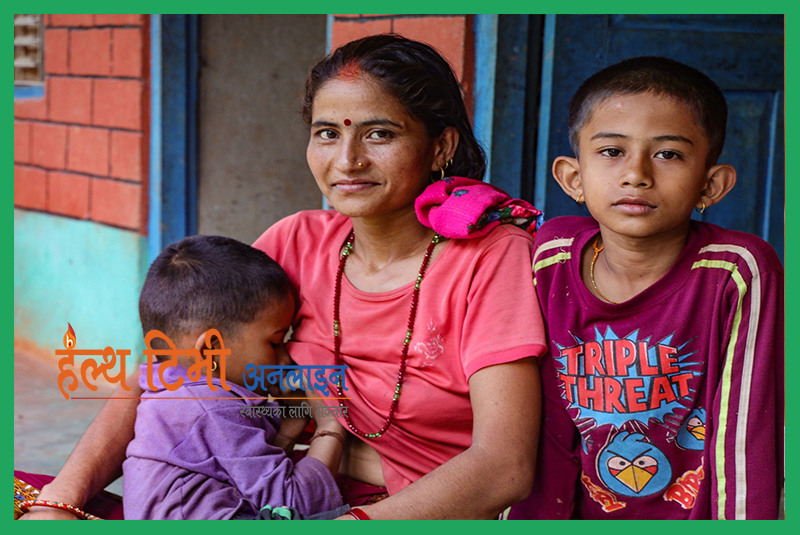
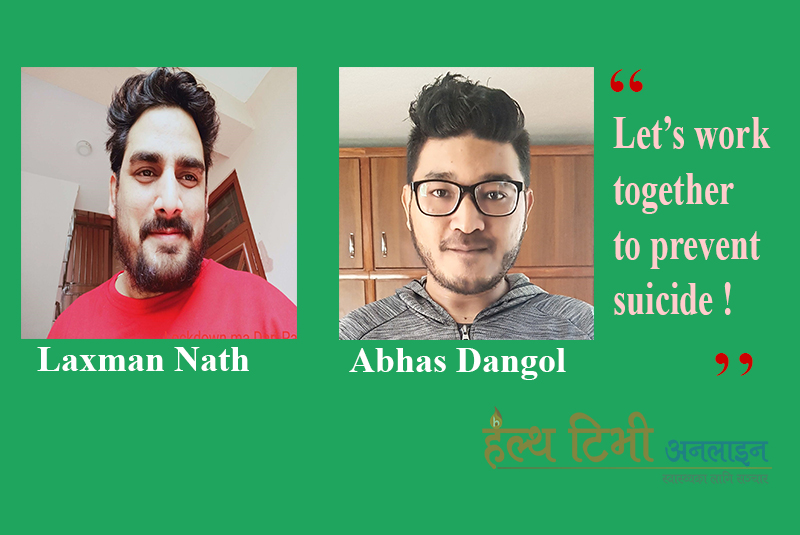
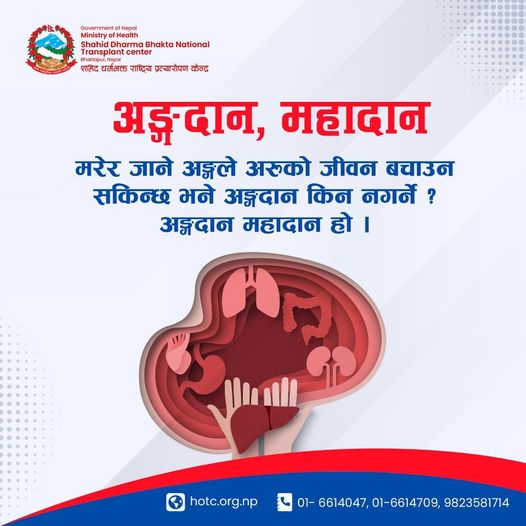
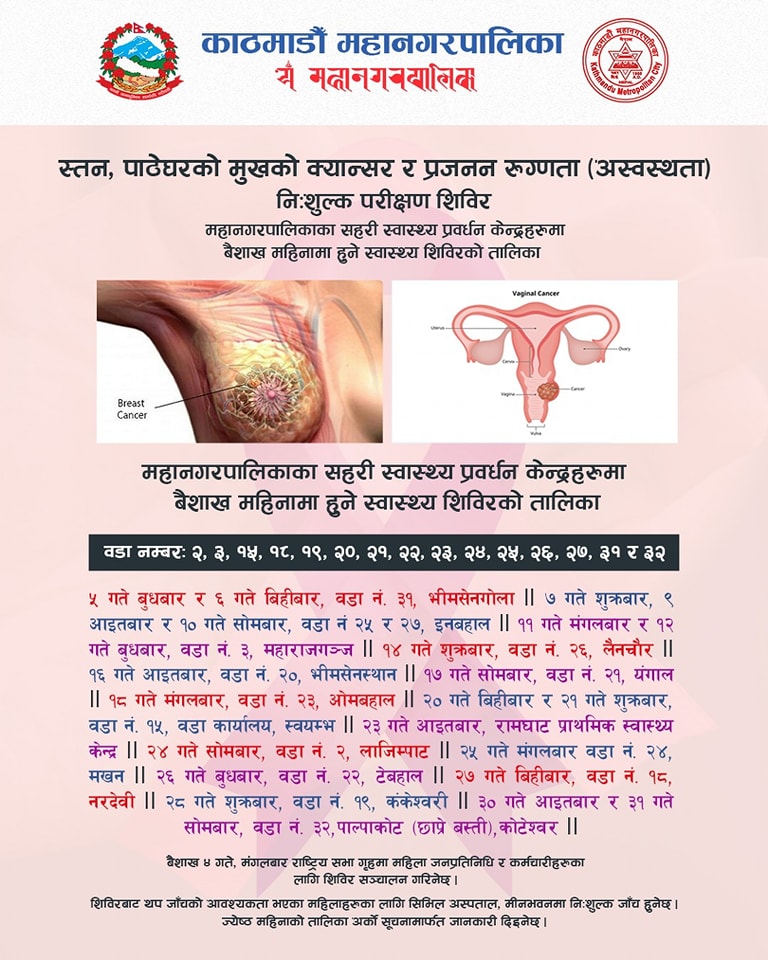
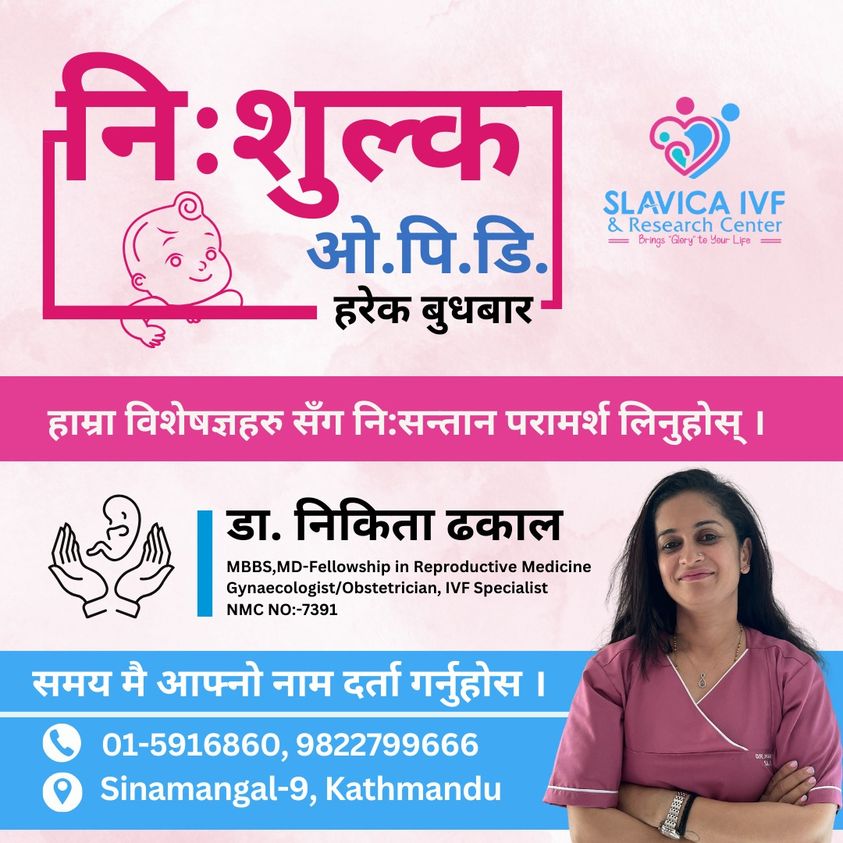
दीर्घ जीवनका लागि रिस त्याग्नुहोस्, शान्त रहनुहोस
बसाइ नमिल्दा ढाड दुख्ने समस्या !
काठमाडौंमा १७ जना औंलोको बिरामी, सबै आयातित
स्वास्थ्य मन्त्रालयले भन्यो, सरकारी अस्पतालमा काम गर्ने अनि निजीको विज्ञापन गर्न कहाँ पाइन्छ ?
गर्मीमा तातो हावा ‘लू’ बाट कसरी जोगिने ?